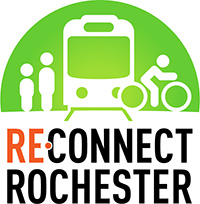by Karen Lankeshofer
It’s my good fortune to be teaching in Kazan, Russia this year because it afforded me the opportunity to attend the Winter Cycling Congress in Moscow. The 4-day conference was held from Thursday, February 7 until Sunday, February 11. It wasn’t just about cycling when it snows, it was about making cities more livable. (Copenhagen removes snow from the sidewalks and bike paths first and only then cleans the streets. The snow is then dumped in parking lots. Motorists understand that they are not the top priority. Ya gotta love it!)
From all the sessions I attended, one thing was abundantly clear: change starts at the bottom and it always starts small. Whether it was passing out LED lights to school kids in Finland so they could ride to school through the dark or the Austrian-Polish couple who rides their tandem all over Europe and invites mayors of the cities they stop in to take a ride with them, all the initiatives were from the bottom up and not top down. These stories underscored for me the continued importance of grassroots efforts and constant advocacy work. To see how advocacy can work well, check out Slow Roll Chicago and Equiticity. Obai Reed is making things work.
Two other important take-aways for me were that poorly constructed or insufficient infrastructure is the cause of many otherwise avoidable crashes. Markings have to be clear for all traffic participants, surfaces have to be non-slippery and all infrastructure should be built with the assumption that it will be used in winter and constructed accordingly. The second thing is that Vision Zero in Sweden is now 20 years old. The goal of the program is being revised to not just reducing traffic deaths and injuries, but to increasing life expectancy.
One unexpected bonus for me was that I met the delegation from my Russian province of Tatarstan there. They are very interested in improving biking conditions through bike education in the schools and creating better infrastructure. I was able to connect them with my school, and my administration is already making plans to install a covered bike rack in spring and working together with the delegation to hold bike education classes at Bala-City School.
The WCC closed on Sunday with a bike parade through snowy Moscow. There were between 3000 and 4000 participants. Winter cycling is not a passing fad. It’s a part of a growing awareness that urban areas have to change their way of thinking if they want to survive and remain viable.
Next year’s WCC will take place in Calgary.



